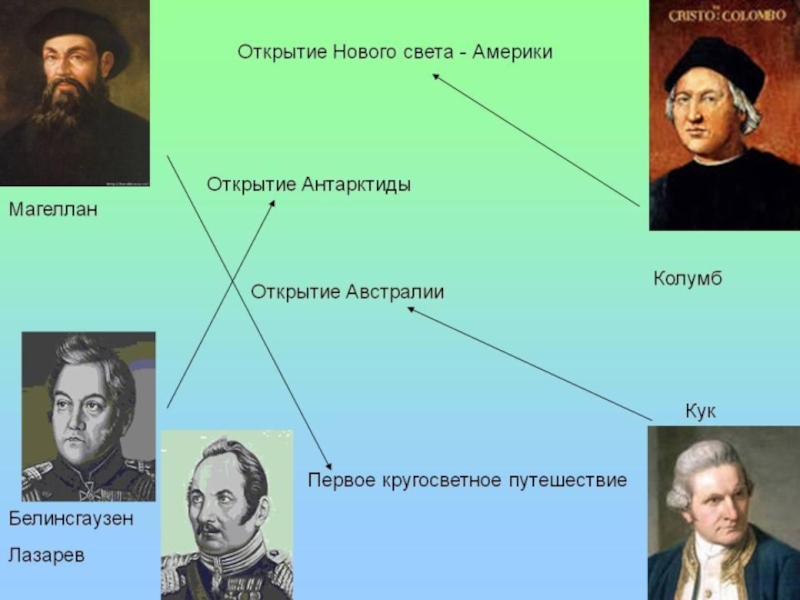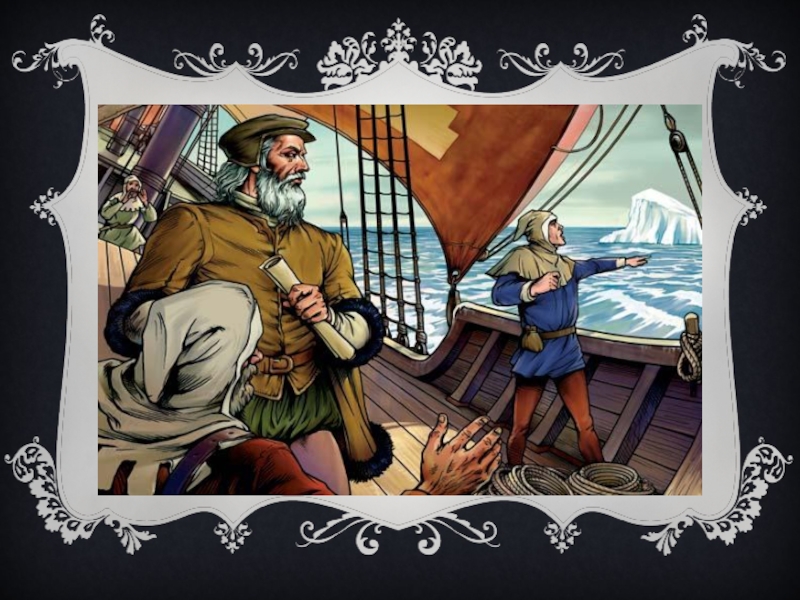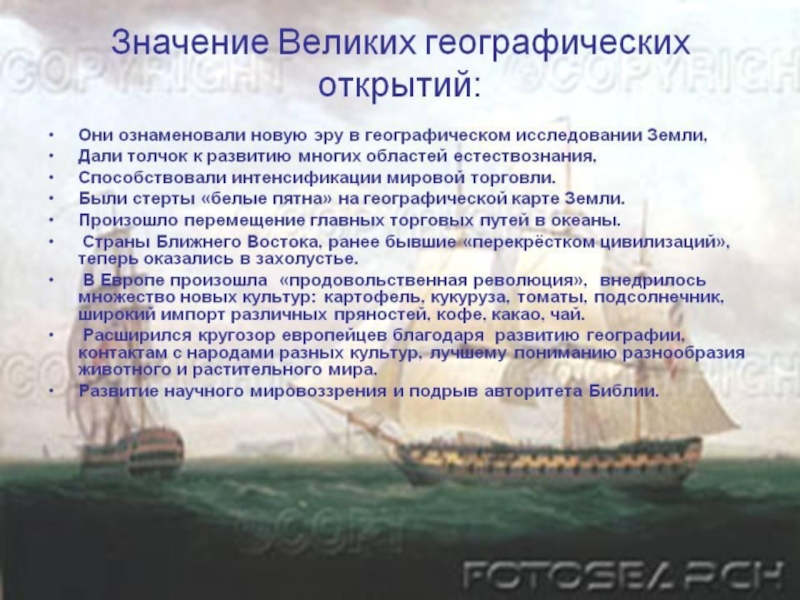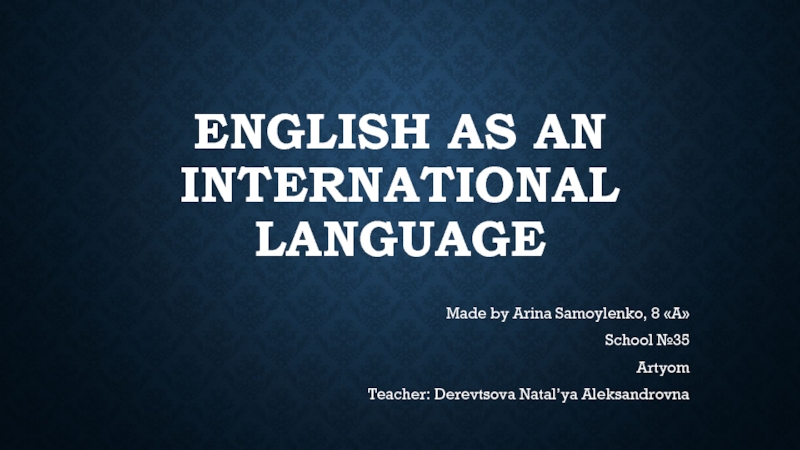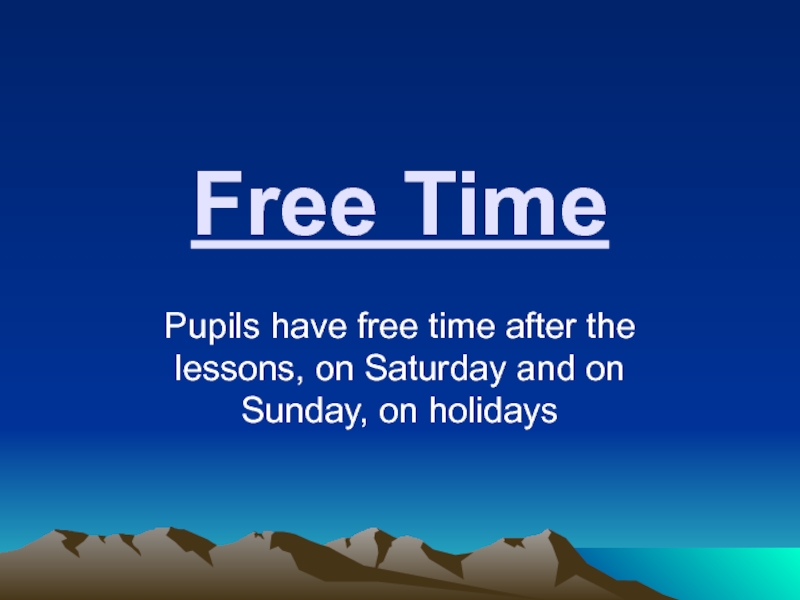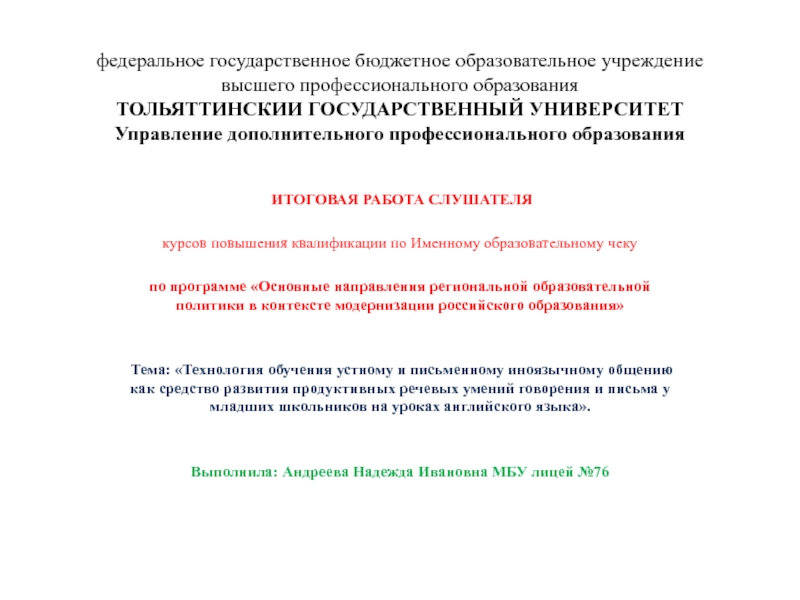Разделы презентаций
- Разное
- Английский язык
- Астрономия
- Алгебра
- Биология
- География
- Геометрия
- Детские презентации
- Информатика
- История
- Литература
- Математика
- Медицина
- Менеджмент
- Музыка
- МХК
- Немецкий язык
- ОБЖ
- Обществознание
- Окружающий мир
- Педагогика
- Русский язык
- Технология
- Физика
- Философия
- Химия
- Шаблоны, картинки для презентаций
- Экология
- Экономика
- Юриспруденция
Великие географические открытия
Содержание
- 1. Великие географические открытия
- 2. Слайд 2
- 3. Age of DiscoveryThe Age of Discovery is
- 4. Слайд 4
- 5. Inventions, which were to make possible the far ocean swimming.
- 6. The value of the Great geographical discoveries.1.
- 7. Age of discovery is the most important
- 8. Слайд 8
- 9. Слайд 9
- 10. The great geographical discoveries had world-historical significance.
- 11. James CookCaptain James Cook, FRS, RN (7
- 12. Cook joined the British merchant navy as
- 13. Fabian Gottlieb Thaddeus von Bellingshausen (20 September
- 14. Consequences of the great geographical discoveries· a
- 15. Слайд 15
- 16. Слайд 16
- 17. Слайд 17
- 18. Thank you for attention
- 19. Скачать презентанцию
Age of DiscoveryThe Age of Discovery is a historical period of European global exploration that started in the early 15th century with the first Portuguese discoveries in the Atlantic archipelagos and
Слайды и текст этой презентации
Слайд 6The value of the Great geographical discoveries.
1. Discovery of a
sea route to India.
2. The discovery and exploration of the
new continent.3. Defined the contours of almost all continents.
4. Enrichment by new knowledge of the history, Ethnography, Zoology, botany.
Слайд 7Age of discovery is the most important geographical discoveries made
by the European expeditions in the mid-15th to mid 17th
century: the discovery of H. Columbus America, discovery V. da Gamma India.Слайд 10The great geographical discoveries had world-historical significance. Were established the
contours of the inhabited continents, explored most of the earth's
surface, was obtained representation on the form of the Earth as a huge balloon and its dimensions. The great geographical discoveries have given impetus to the development of not only the geography, but many other fields of science, providing extensive new material for botany, Zoology, Ethnography. The Great geographical discoveries Europeans first became acquainted with a number of new agricultural crops (potatoes, maize, tomato, tobacco).The great geographical discoveries helped to establish new trade and cultural contacts between the two countries has expanded people's ideas about life on other continents and in different countries. Many European countries have acquired new colony - dependent peoples and Nations for new natural and economic resources. However, there are new diseases that were previously unknown, new weapons and tools.
Слайд 11James Cook
Captain James Cook, FRS, RN (7 November 1728[NB 1]
– 14 February 1779) was a British explorer, navigator, cartographer,
and captain in the Royal Navy. Cook made detailed maps of Newfoundland prior to making three voyages to the Pacific Ocean, during which he achieved the first recorded European contact with the eastern coastline of Australia and the Hawaiian Islands, and the first recorded circumnavigation of New Zealand.Слайд 12Cook joined the British merchant navy as a teenager and
joined the Royal Navy in 1755. He saw action in
the Seven Years' War, and subsequently surveyed and mapped much of the entrance to the Saint Lawrence River during the siege of Quebec. This helped bring Cook to the attention of the Admiralty and Royal Society. This notice came at a crucial moment in both Cook's career and the direction of British overseas exploration, and led to his commission in 1766 as commander of HM Bark Endeavour for the first of three Pacific voyages.In three voyages Cook sailed thousands of miles across largely uncharted areas of the globe. He mapped lands from New Zealand to Hawaii in the Pacific Ocean in greater detail and on a scale not previously achieved. As he progressed on his voyages of discovery he surveyed and named features, and recorded islands and coastlines on European maps for the first time. He displayed a combination of seamanship, superior surveying and cartographic skills, physical courage and an ability to lead men in adverse conditions.
Cook was killed in Hawaii in a fight with Hawaiians during his third exploratory voyage in the Pacific in 1779. He left a legacy of scientific and geographical knowledge which was to influence his successors well into the 20th century and numerous memorials worldwide have been dedicated to him.
Слайд 13Fabian Gottlieb Thaddeus von Bellingshausen (20 September [O.S. 9 September]
1778 – 25 January [O.S. 13 January] 1852; Russian: Фаддей
Фаддеевич Беллинсгаузен, Faddey Faddeyevich Bellinsgauzen) was a Baltic German officer in the Imperial Russian Navy, cartographer and explorer, who ultimately rose to the rank of Admiral. He was a notable participant of the first Russian circumnavigation and subsequently a leader of another circumnavigation expedition, which discovered the continent of Antarctica.Fadey Bellinsgausen
Слайд 14Consequences of the great geographical discoveries
· a sharp rise in
the prices of basic products associated with the influx of
a large number of gold and silver from the new world;· the beginning of the formation of the colonial system;
· move the trade routes from the Mediterranean to the Atlantic ocean;
· the formation of the world market.
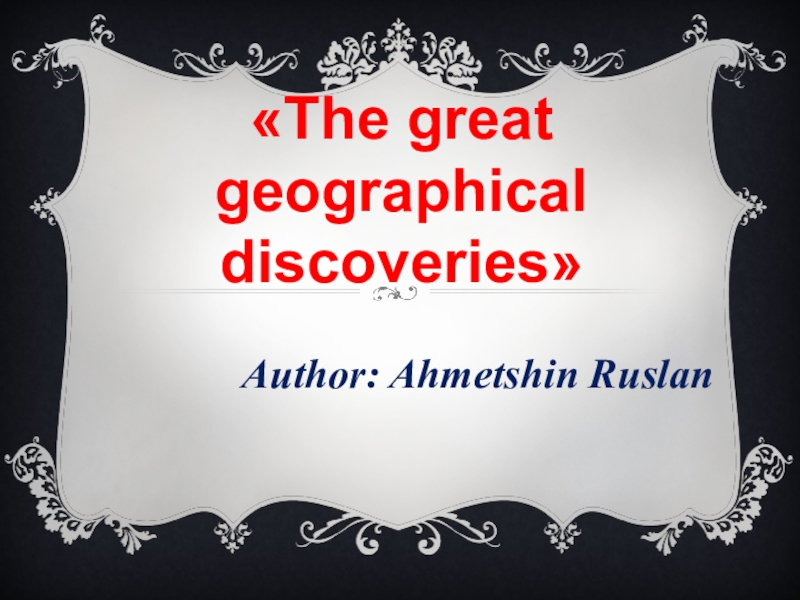

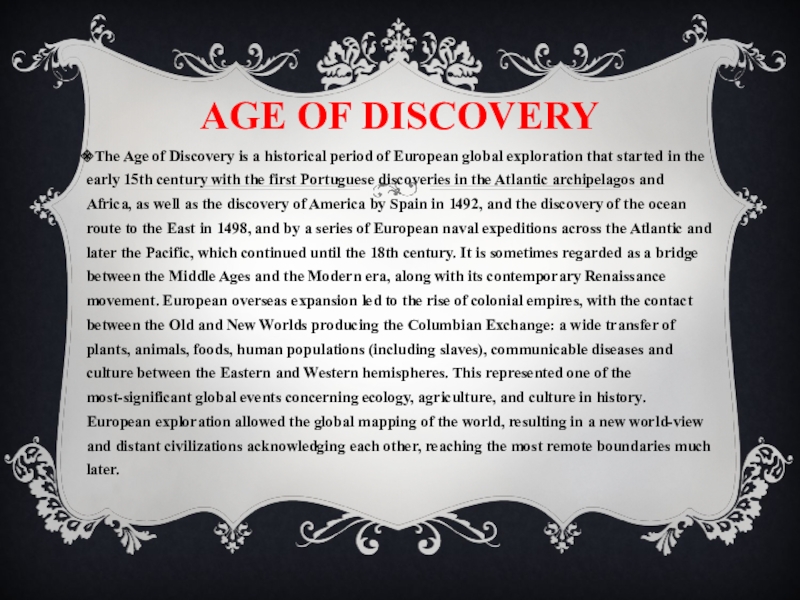
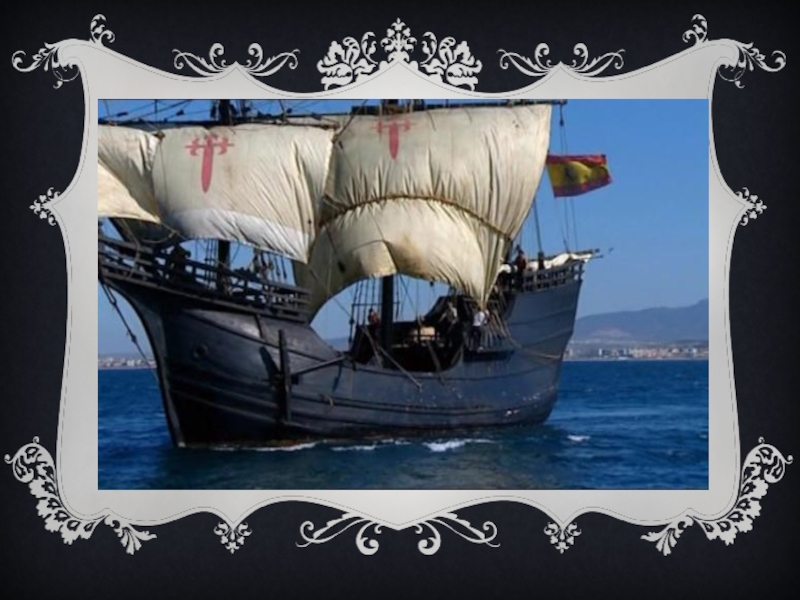
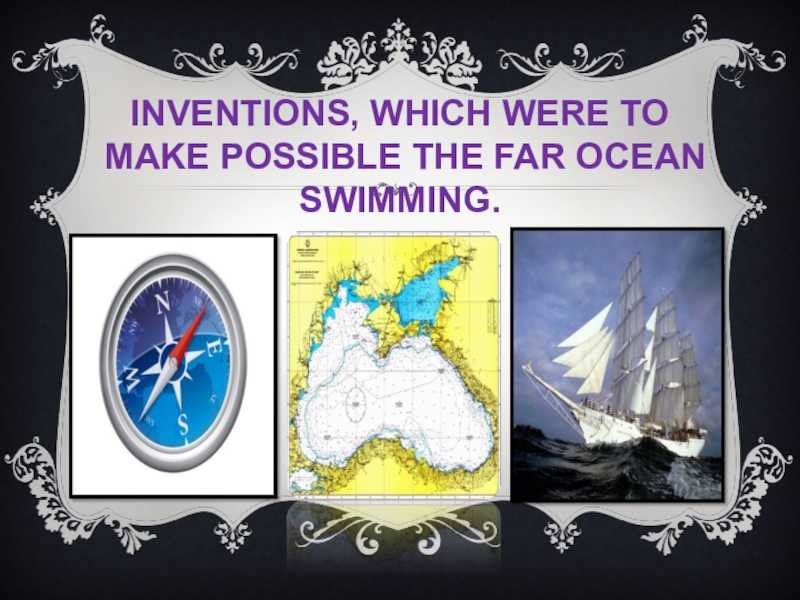

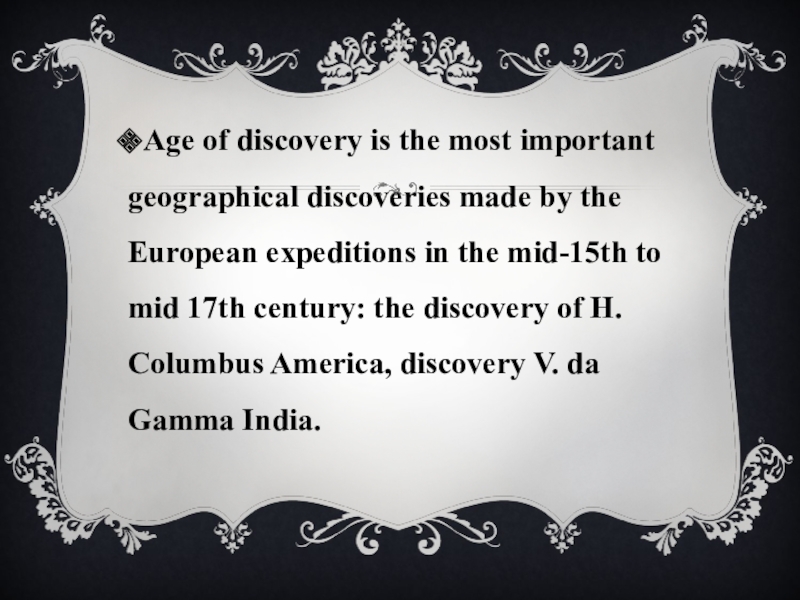
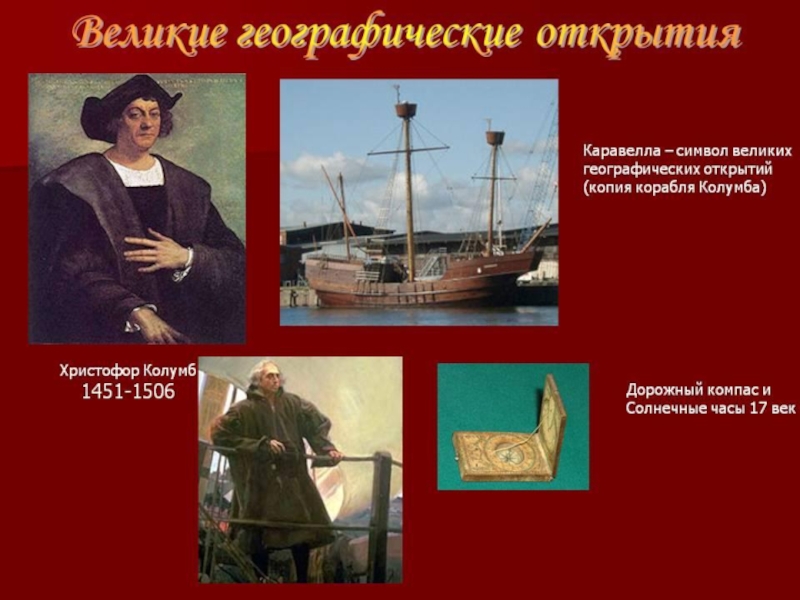
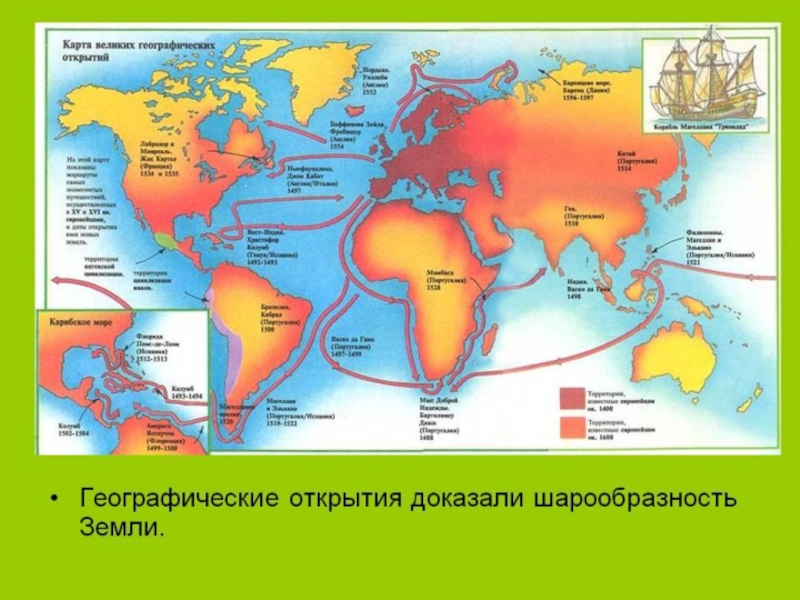
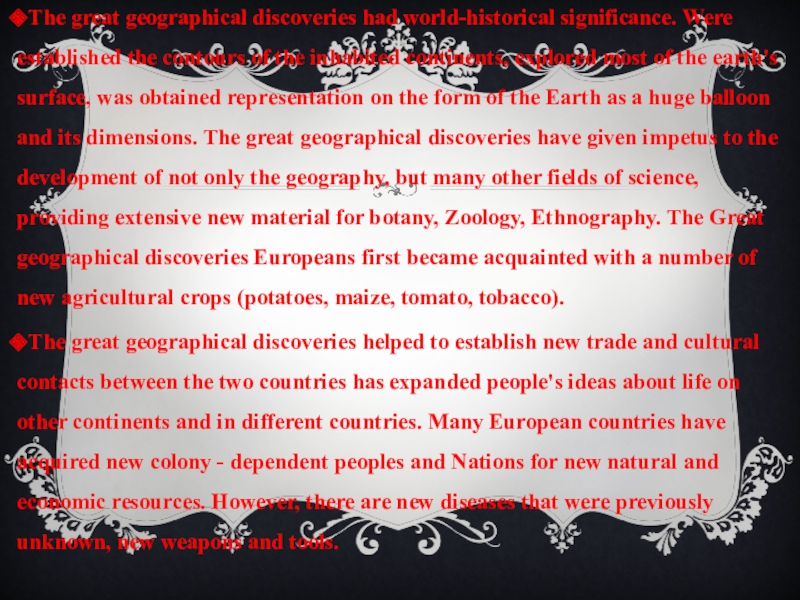
![Великие географические открытия James CookCaptain James Cook, FRS, RN (7 November 1728[NB 1] – James CookCaptain James Cook, FRS, RN (7 November 1728[NB 1] – 14 February 1779) was a British](/img/thumbs/b053d3d7f010788dc336857770321a29-800x.jpg)
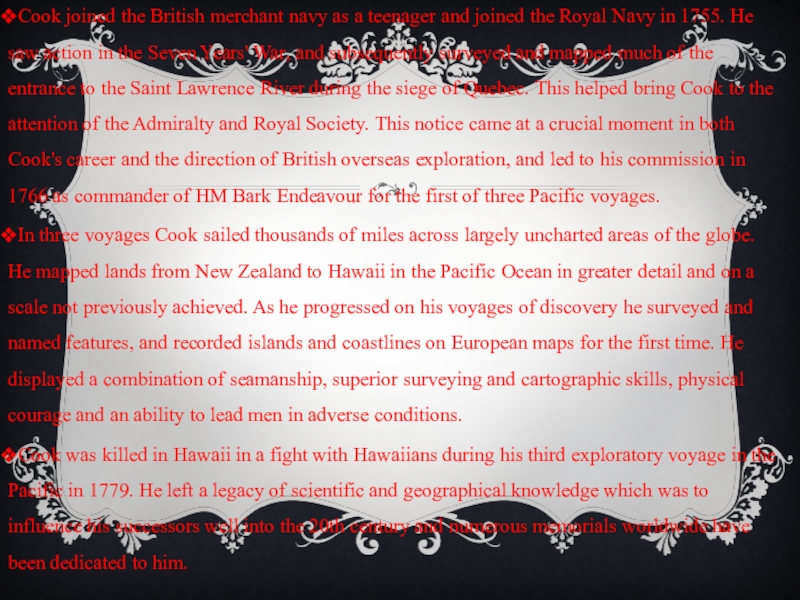
![Великие географические открытия Fabian Gottlieb Thaddeus von Bellingshausen (20 September [O.S. 9 September] 1778 Fabian Gottlieb Thaddeus von Bellingshausen (20 September [O.S. 9 September] 1778 – 25 January [O.S. 13 January]](/img/thumbs/7cb7a34324b007b92ec1d651cd3e2107-800x.jpg)

